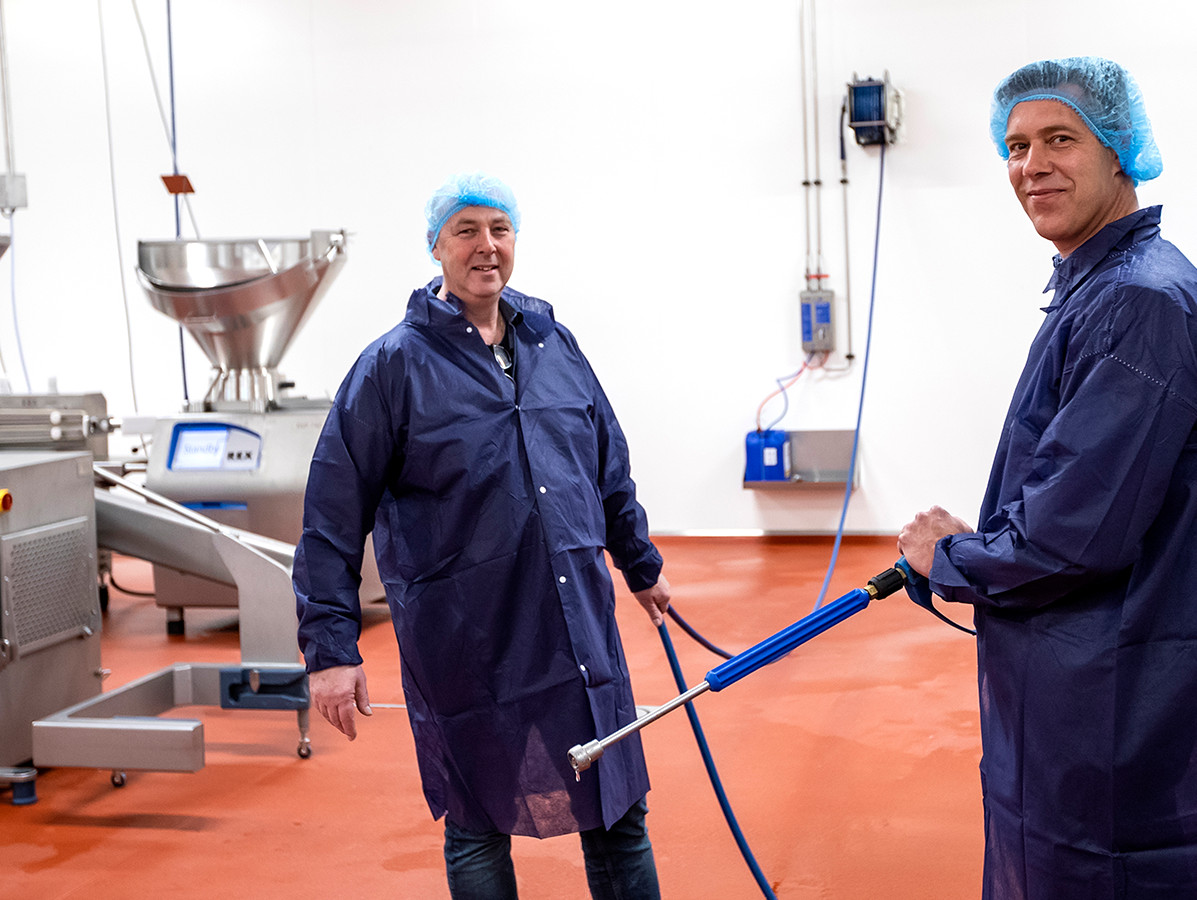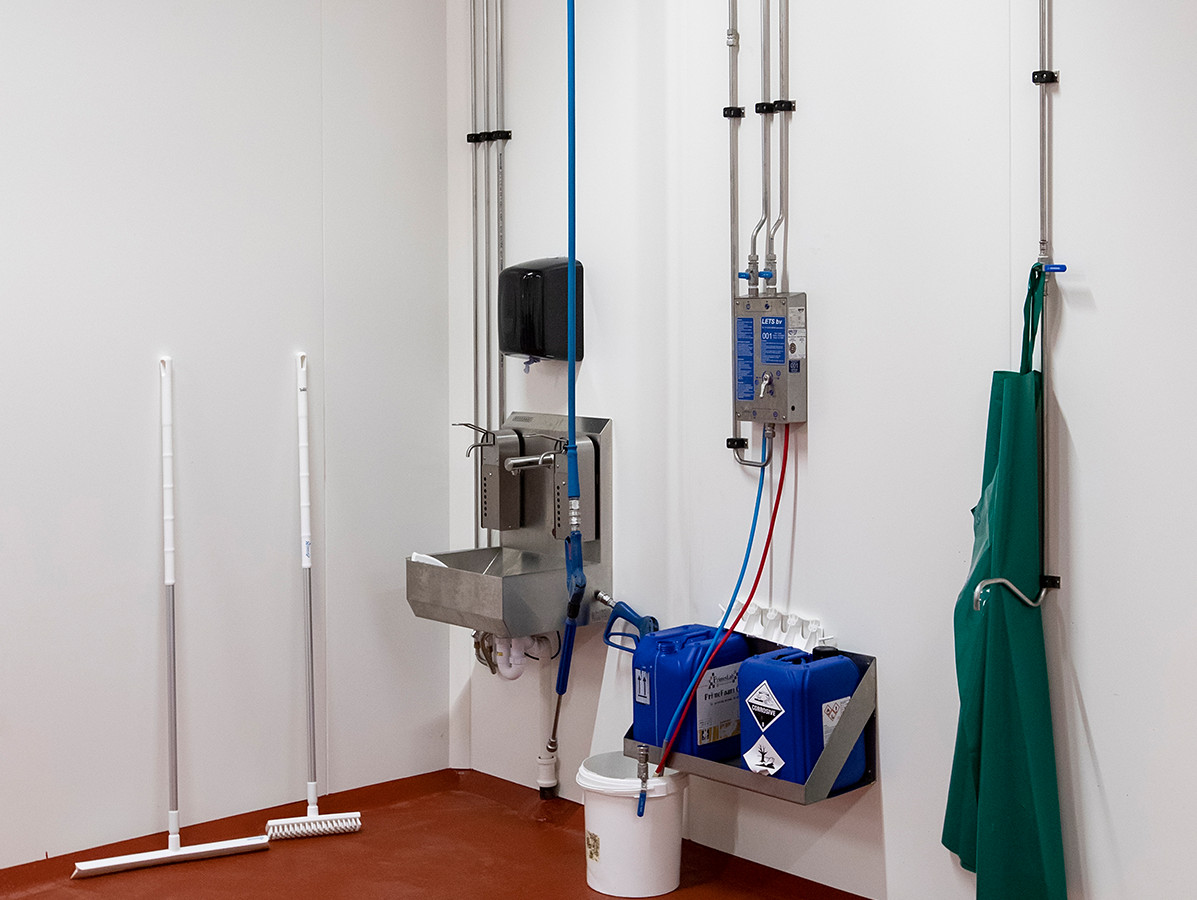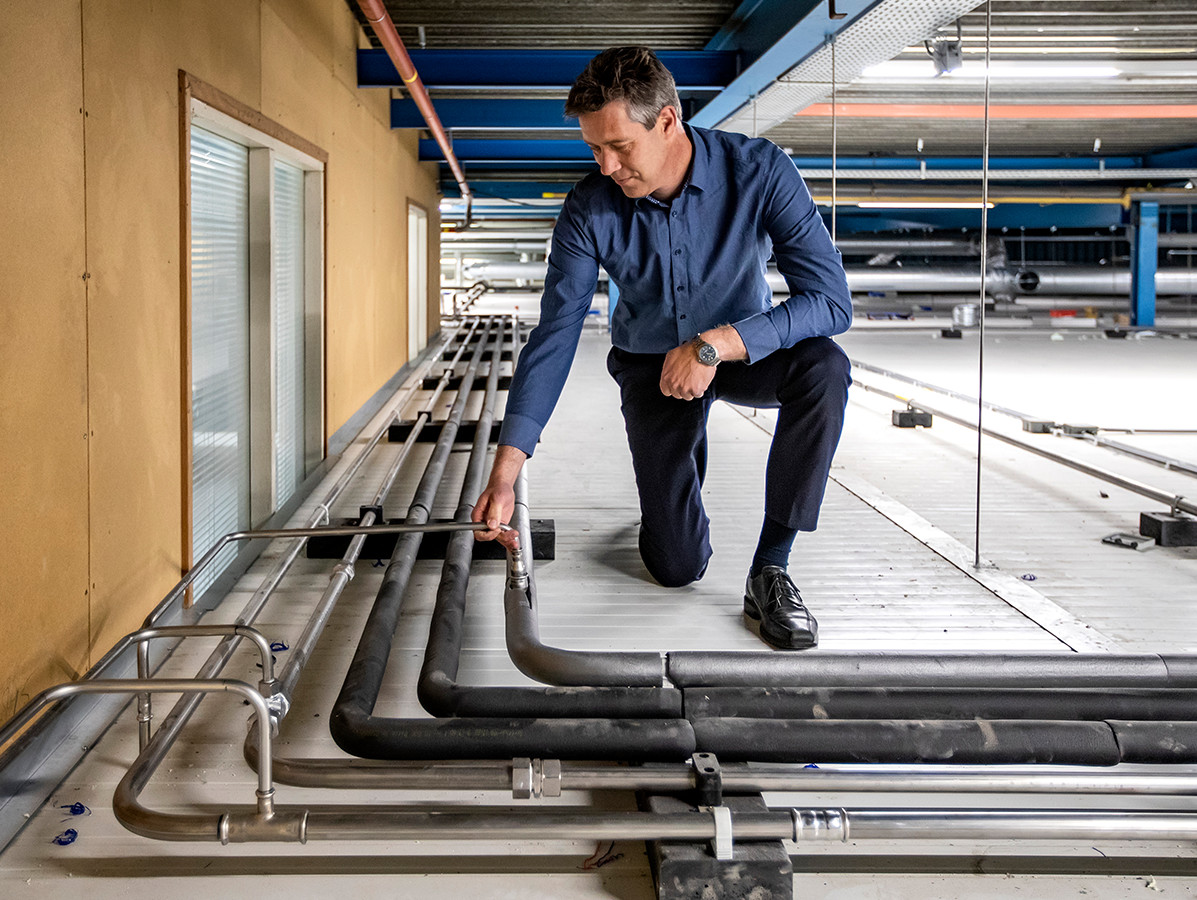
Meat company Van Essen has moved from Den Nul to Raalte, where they have set up an ultramodern building. Owner Paul van Essen: "A logistical and technical masterpiece. All the piping is made of stainless steel and I can install machines anywhere I want in no time at all".
Meat company Van Essen processes approximately 20,000 kilos of meat every week for meal makers, food services, retail and wholesalers. Ground products and sausages are the main ingredients. A number of regional products in supermarkets originate from his company, mainly under private label. The company mainly uses Dutch fresh and frozen meat from beef, pork and chicken. Seperator meat is not used.
Demand was growing and the location in Den Nul became too small. A building in Raalte offered a solution, says Paul van Essen: "A framework with offices with a lower and upper floor of 1,000 m2 plus a production hall of more than 3,000 m2 on a 7,000 m2 site. We were given the keys on 2 December 2019 and production started in Raalte on 28 April 2020. In the months in between, the building was completely stripped and rebuilt. Now there is an ultramodern meat processing plant there".
The company has a sophisticated routing and up to sixty percent expansion possibilities without having to make major renovations. The 'heart' of the company is located on the approximately 3000 m2 attic that overlaps all the workspaces below. This is where the stainless steel circular piping system is located, conveniently arranged and easily accessible at all locations. Equipment can draw off hot and cold tap water, compressed air, gas and electricity from there when necessary. Van Essen is proud. "All our piping is made of stainless steel. Indestructible, super tight, foolproof and easy to clean. All thanks to the collaboration with Lets bv in Dronten".
"It isn’t that easy to install a pipeline at a food company" says Guustaaf Hoekstra, commercial director of Lets bv. "If you are going to lay out a tap water system, you have to determine points in advance, know how much capacity the machines need and where possible pressure losses may occur. If you do this well, you won't encounter any problems, even in case of expansion".

It is important for the meat company to comply with current and future legislation and to be able to work hygienically. Stainless steel can be thermally and chemically disinfected. Paul: "We can link chemicals at the beginning of the pipeline and flush them through the loop. Rinse with clear water and the pipeline is clean. This means no more bacteria forming. I already had equipment from Lets. Indestructible. They reconnected all existing equipment and provided an extra hygiene lock, expansion of the foam/disinfection system and even stainless steel crash protection. I'm relieved in every way."
Guustaaf is just as enthusiastic as Paul. He walks with us through the building, starting at the entrance with the offices next to it. Behind it is the technical area and further on we are literally making a round through the spaces in the building. Logistically it is a well thought-out route for transport and processing, with above our heads, invisible, the circular piping system. We pass through the hygiene lock and past the freezer for 250 pallets. We pass the cooled air-purified space for waste containers. Next we get to the 'real work': the space for dough preparation and the sausage factory. Clean floors, smooth walls and neat piping to and from each machine, plus a foam/high-pressure cleaning unit in each room. The walls are foamed daily and then sprayed clean at 80 Bar high pressure.

Funny is to discover 'gadgets', for example at the two grinders. There is a self-designed system to set the exact amount of cold water that is added to the meat with a swing tube above the grinder. Just as remarkable is the stainless steel crash protection in the ready to eat department, where hamburgers and Dutch-style beef rolls, among other things, are made. Between these two large work areas there is a depth chiller, where fresh meat is placed at -2.5 °C for preparation.
Behind the ready-made department is the large soup kitchen with steamers, boilers and smokers, all relocated from the old building, says Van Essen. "The smokers are located a meter from the wall allowing us to clean them completely." The shock freezers, evaporation room and cold store for the end products are to follow. Finally, the cycle is almost complete, we arrive at the changing rooms and the room with the also relocated crate washer, which is busy cleaning crates and grids.
Guustaaf Hoekstra and Paul van Essen sum it up as a traditional, no-nonsense family business in a future-oriented working environment. To which Paul adds: "We use industrial machines to make a good product using traditional methods. And we can go on for years to come".
www.vleesbedrijf-vanessen.nl
www.letsbv.nl
Photo: © fotobureau Hissink
Source: © Vakblad Voedingsindustrie juni 2020